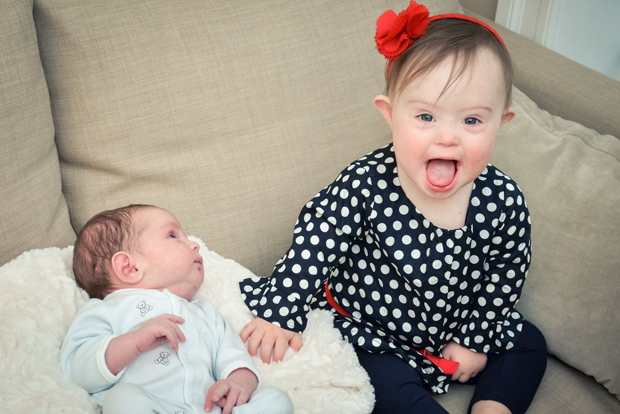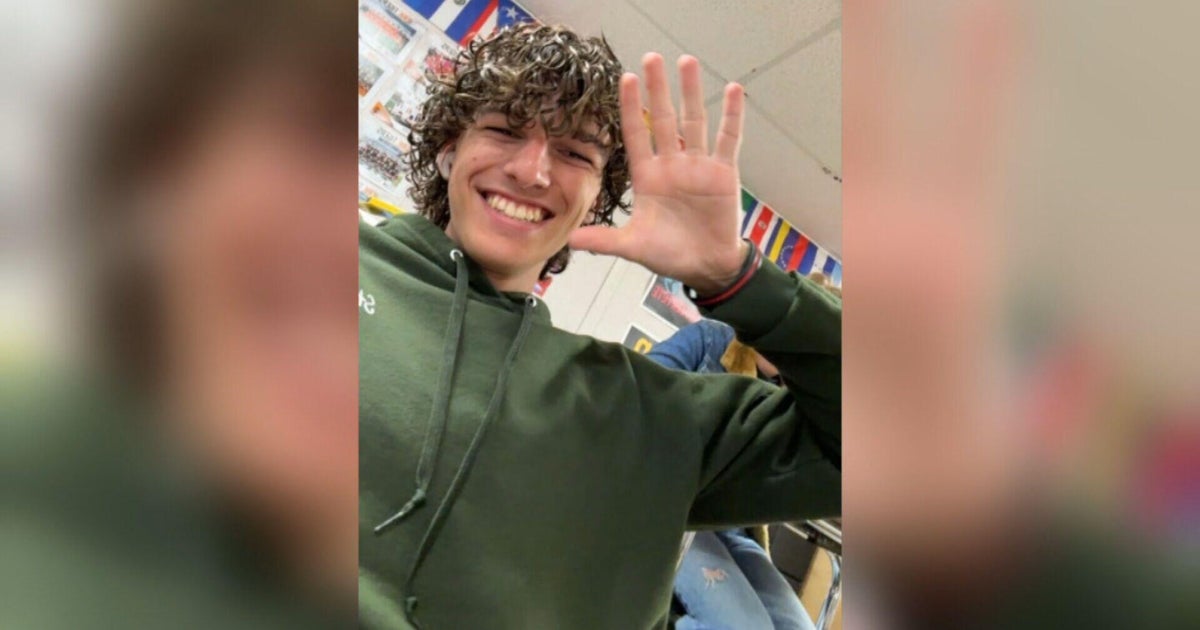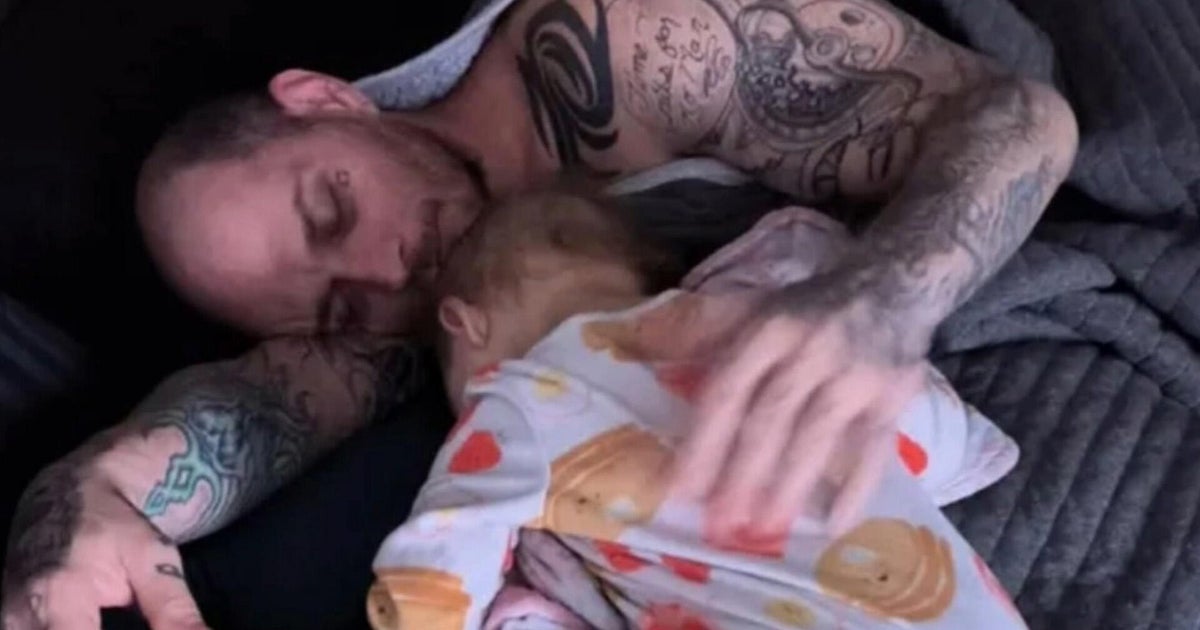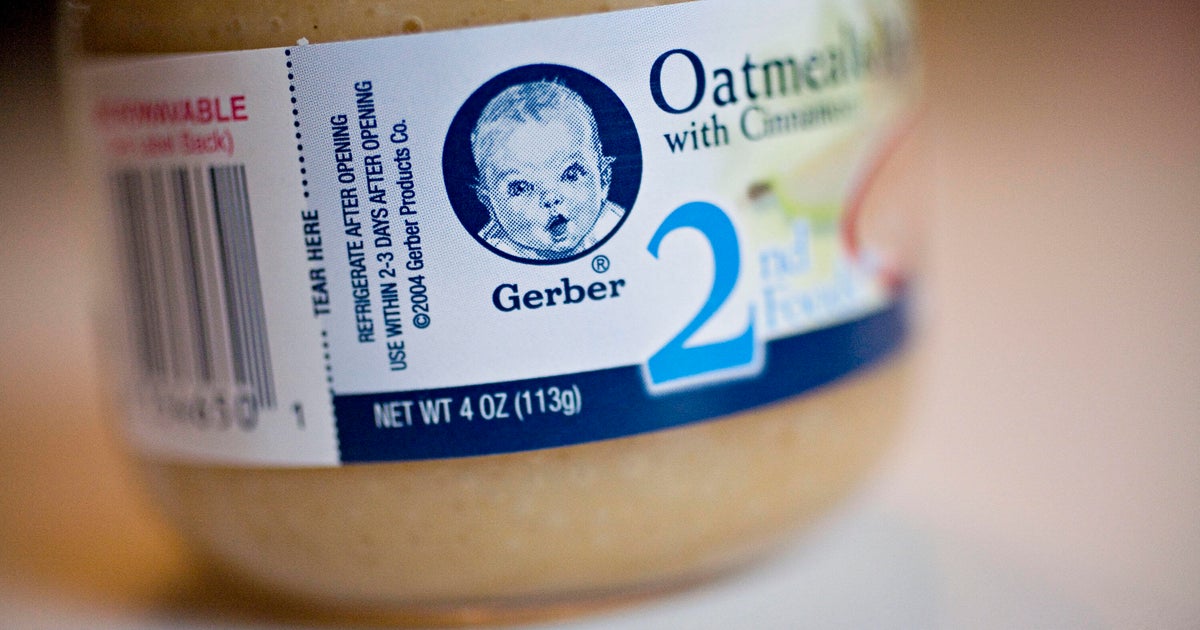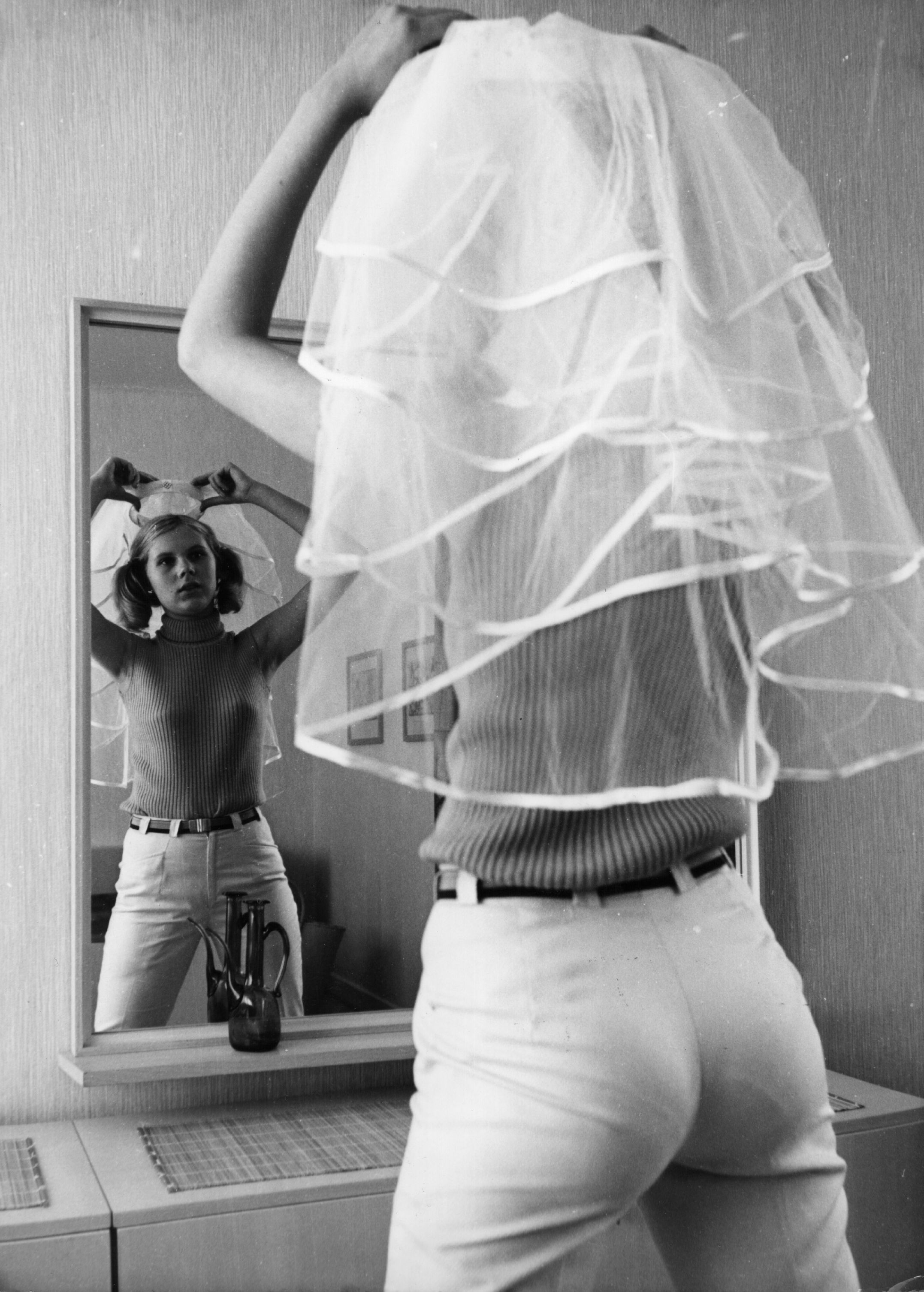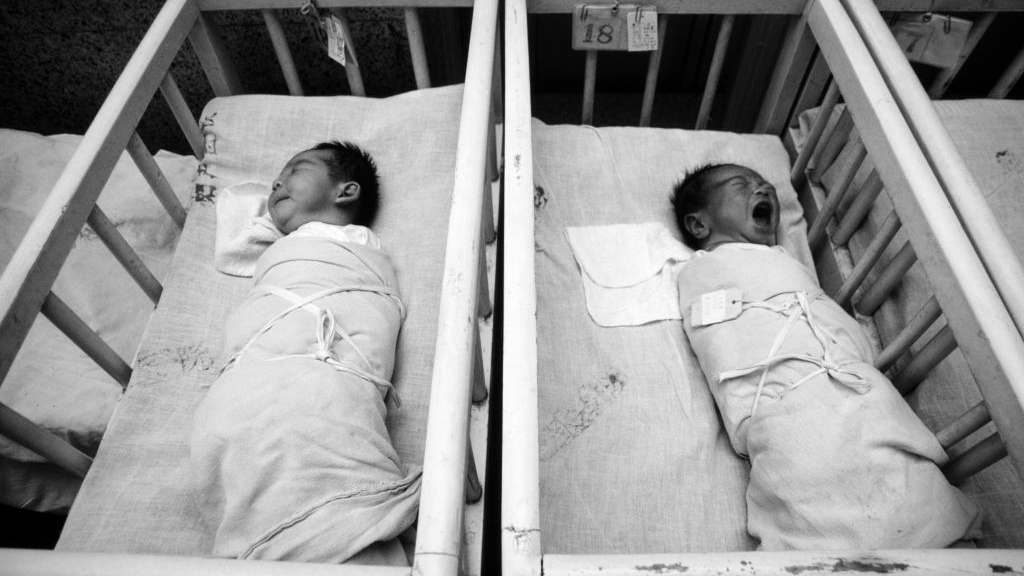"I didn't know I would be able to love her the way I do": A mother's story of Down syndrome
Editor's note: This article was first published to mark World Down Syndrome Day in 2015. Marguerite (Maggie) Reardon is a senior writer at CNET, where she writes the "Ask Maggie" advice column, and a mother of two. On Twitter: @maggie_reardon
I got the call two years ago that no expecting parent wants.
The genetic counselor told me the baby girl I was carrying would have Down syndrome. I felt like I had been sucker-punched. I sobbed, mourning the loss of the child I thought I was supposed to have.
My husband and I had been married less than six months when I found out I was pregnant. We were both 39 years old, and we assumed our road to parenthood would be a bumpy one filled with infertility treatments and anxious waiting. But we were lucky. I got pregnant with relative ease. So I assumed we had passed over the biggest hurdle associated with my "advanced maternal" age.
Though I had just a 1 in 100 chance of having a baby with Down syndrome based on my age, the thought of having a baby with a chromosomal abnormality never crossed my mind. I knew lots of women my age and older having babies, and none of them had a baby with Down syndrome.
Even so, when the genetic counselor offered us the option of taking a new noninvasive blood test that tests for Down syndrome and other disorders, I was game. After all, the test would also tell us the baby's gender at just 12 weeks gestation -- a whole eight weeks ahead of when it can be determined with an ultrasound. As someone who can barely resist the temptation to sneak a peek at my Christmas gifts, I wanted -- no, I needed -- to know if I was having a girl or boy. Then I could let the daydreaming begin of the wonderful new family we were creating.
And then I got the call. My daydreams shattered, and my husband and I were devastated by the news.
Here's the thing: Before we received the test results, I believed and even said out loud to the genetic counselor that we wouldn't end the pregnancy under any circumstance, no matter what the genetic tests found. That was a wonderful sentiment in theory. But when faced with the reality of raising a child with an intellectual disability, I wasn't sure I wanted to do it.
To be clear, I knew we could do it. My husband and I are educated. We have good jobs and supportive families. I've even been known to be a little pushy (I'm a reporter, go figure). So I knew we'd have the resources, social support and know-how to navigate bureaucracies to get our daughter what she needed.
But it all sounded exhausting and painful -- not the dream life I pictured for our family.
I recognized from the moment I began considering ending my pregnancy that the decision was based more on sparing myself and my husband the pain of raising a child with Down syndrome rather than sparing our child.
I knew I could quietly end the pregnancy, tell friends and family I had miscarried and start again. We could put the whole thing behind us and pretend it never happened. I could get a do-over.
Fortunately for my daughter, my husband wasn't on board with that plan. When I whined it wasn't fair we had been dealt a crappy hand, he said, "Fair? What's fair? What does that even mean?" Still, he was scared about our future, too.
And he told me if I really thought I couldn't love this child, he would do whatever I wanted.
Learning what I didn't know
So I wiped my tears and let my reporter instincts take over. I needed to find out as much as possible to make an informed decision about what our lives might look like raising a child with Down syndrome.
The medical information was intimidating. About half those with Down syndrome are born with a heart defect that often requires surgery in early infancy. Babies with Down syndrome are also at an increased risk of leukemia and thyroid disorders.
By the age of 40, every person with Down syndrome has the pathology of Alzheimer's in their brain. And there are a host of other less dramatic illnesses and disorders they are at increased risk of developing, such as sleep apnea, gastrointestinal blockages, ear infections, hearing loss, seizures, poor vision, skeletal problems and skin problems such as psoriasis.
But thanks to advances in medical care, most of these health issues can be easily managed. As a result, life spans have increased dramatically for people with Down syndrome. In 1910, a baby born with Down syndrome often didn't live to age 10. Today, people with Down syndrome are expected to live to age 60 and beyond.
Researchers are also studying the link between Alzheimer's disease and Down syndrome. There are several drug trials going on right now that offer hope not only to people with Down syndrome but also for the general population affected by Alzheimer's disease.
Of course, scary medical complications are just one piece of the puzzle. What I really needed to know was what day-to-day life was like for someone living with an extra chromosome.
My personal experience of people who have Down syndrome was limited. When I was born in the early 1970s, some doctors still advised parents to put babies born with Down syndrome in institutions. Children in my community with Down syndrome went to a "special" school.
Thanks to the advocacy of parents, a federal law passed in 1990, called the Individuals with Disabilities Education Act or IDEA, helped change how children with Down syndrome are educated.
Now, many children with Down syndrome are educated in regular classrooms with their peers. Some even graduate high school with a standard academic diploma and go on to college. Many adults with Down syndrome live on their own or in group homes with some support. They hold jobs. They travel and have romantic relationships. Some even get married.
In short, someone born with Down syndrome today has the same chances the rest of us have of living a fulfilling and productive life surrounded by people who love them.
Gigi's Playhouse
Still, I needed more information. One of the best pieces of advice I found online was from a parent blog encouraging me to seek out a local Down syndrome support group where I could connect with actual families. A quick Google search led me to Gigi's Playhouse in New York City.
The non-profit organization was started by Nancy Gianni from Illinois after her third child, Gigi, was born with Down syndrome. Gianni made a promise to her that she would change the way people viewed Down syndrome. Her goal was to create a place where people with Down syndrome could be celebrated, where individuals with Down syndrome could receive therapies and participate in educational programs and where families could go for support.
There are currently 15 Gigi's Playhouses in the U.S. and Mexico. The one in New York City, was open less than a year when I received my prenatal diagnosis.
Within an hour of contacting Gigi's Playhouse, Britt Sady, the director of the New York Playhouse and mom to a five-year old boy who has Down syndrome, called me back. She told me I wasn't alone. There was a local community of families there to help and support us. She invited me to the Playhouse to meet other families and, most importantly, to meet the children and adults with Down syndrome who participate in the Playhouse's programs.
It was March and the Playhouse was hosting a party on March 21 to celebrate World Down Syndrome Day. My husband and I went to the party. I still wasn't ready to commit to this pregnancy.
My thinking changed after that one visit. To say Gigi's Playhouse helped save my daughter's life may sound dramatic, but it's true. We were welcomed into the community. And I could see first hand that many of my fears were unfounded. These kids played and acted just like other children. They laughed, danced, wrestled with each other, whined and cried just like kids I knew who had the standard 46 chromosomes.
The line I had read over and over on blogs about individuals with Down syndrome being more alike than different from their typical peers was true.
I asked parents what life was really like with their children. I wasn't buying the blogs by people describing their children as "angels sent from heaven" who were "extra special" because they have an additional chromosome. These children didn't have Down syndrome, these parents said, they had "Up syndrome." Unlike other children, their babies magically pooped rainbows and peed daisies. Yeah, right. I wanted the real stories, both good and bad.
What I learned from the parents at Gigi's Playhouse was that even though their children shared a common diagnosis, they were all different -- and so was each family's experience. Their children were not always angels. But they weren't burdens either. No matter what, they loved their kids and wouldn't trade them in even if they could.
In short, the hopes and dreams I had for my own family didn't need to be thrown out the window because my daughter would be born with Down syndrome.
I understood some things were going to be more difficult for my daughter. She also might have health issues. She'd likely have developmental delays. I'd have to advocate more for her than I would for a typically developing child. But I also realized these issues didn't add up to a miserable existence for my daughter or for our family.
I knew if I decided to end this pregnancy it was because I was scared. And for me, that wasn't a good enough reason.
One basic truth
Statistics show my husband and I are in the minority when it comes to continuing a pregnancy when Down syndrome is a factor. About 75 percent of such pregnancies end in an abortion. Some parents in the Down syndrome community fear the advent of noninvasive blood testing, like the one I had, will result in even more abortions for fetuses with genetic abnormalities. This may or may not be true. I'm just glad I knew before my daughter was born we would have extra challenges. It gave my husband and me time to process the meaning of the diagnosis, do our research, and set up support for our baby and our family well before she was born.
One thing I want to make clear. There's nothing particularly special about my husband or me. We wanted a baby and that's exactly what we got. She may not be the baby we expected, but then again that's what being a parent is all about. As much as we like to believe we can control who our children will become or that we can protect them from disease or a cruel world unwilling to accept them, the basic truth is, we can't. For some parents it takes years or decades to accept this. My husband and I just had to come to terms with it before our daughter was even born.
Still, I understand this is scary stuff, facing the unknown of a life with a child who has an intellectual impairment and could possibly have a host of physical ailments. But 18 months into this mom gig, I can tell you it's not nearly as daunting as I imagined.
I'm exhausted and stressed out a lot. But it's not because my daughter has Down syndrome. In fact, my husband and I enjoy our baby girl so much, we decided to have another baby when she was only four months old. So if you bump into me on the street and I look over-tired and disheveled, it's because I have a very active 18-month-old daughter, a five-month-old son who still doesn't sleep through the night, and I work full time.
It's true my daughter has some developmental delays. And she receives a bevy of therapies through Early Intervention to help keep her on track. But she's also wonderful. She has a twinkle in her eye and an infectious grin that makes even the most miserable looking people on the subway smile when she stares them down. When she puts her head on my shoulder as I rock her to sleep each night, my heart melts no matter what kind of day I've had. I do think she is more special than other children, but it's not because she has Down syndrome. It's because I'm a completely biased and doting mother who thinks no one could possibly be as adorable, bright or funny as my own child.
And her name is Margot.
